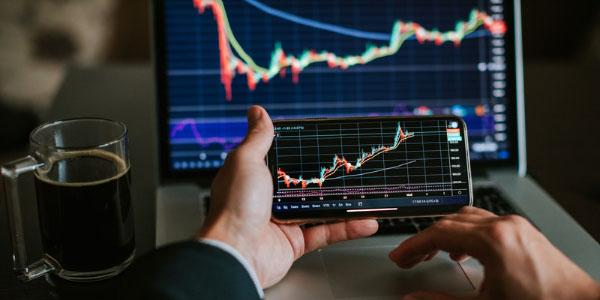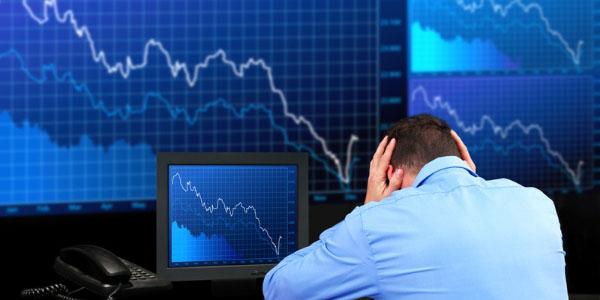
Think Like Champion Athletes When Trading
As a mental performance coach for day traders, I understand the importance of mental preparation and the psychology of day trading for trading success. The psychology of trading is important for for traders who are in high-pressure situations or just put pressure on themselves. Day trading psychology is about your ability to use a champion mindset to buy and sell stocks or securities confidently and with trust.
Do you want to perform like champion athletes do? With sport psychology for trading, you can improve your mindset for trading and perform more consistently. Traders today are taping sports psychologists to help them improve trading performance.
If you’re successful with your simulation trades, but under-performing with real money at the trading desk, your mindset holds you back from success. In fact, traders struggle with the same “mental game” challenges that block athletes’ success in competition, such as negative emotions, lack of focus, indecision, irrational thinking, perfectionism, and not trusting their skills.
Trading is a Mental Game
A huge mental game challenge for day traders is managing worry and fear of failure. When real money is at risk for traders or their firm, anxiety and stress can cripple s trader’s decision-making ability. To improve performance and manage fear, traders must develop mental preparation skills that help them stay in the present moment, be more decisive, and trust in their decision-making.
Emotions can get in the way for traders and hurt you ability to make clear minded decisions. For example, fear and greed for day trader and can impact a trader’s profit/loss. Fear failure or fear of losing can lead traders to sell too early and leave money on the table.
Greed, on the other hand, can result in over trading and poor decision-making. A sports psychologist or mental coach helps traders identify and manage negative emotions by teaching mental strategies to stick to their trading plan and objectives, rather than succumbing to fear and greed.
The level of confidence you trade with is another important mental skill for day trading. Negative self-talk, doubt, and self-critical behavior can hurt your confidence. Having positive self-talk, being encouraging, and using the mindset of resilience can help you feel more confident at the trading desk.
A sports psychologist or mental coach helps traders develop a positive mindset and confident self-talk, which improved their mental game and trading performance.
Emotions Can Hurt Trading Performance
Tilt in trading happens when a trader trades in poor emotional state, such as frustration. This leads traders to make bad decisions because of the negative emotions clouding decision making. Tilt happens most often after a poor or losing trade happens, which then leads to hasty trading. Emotional Tilt can also cause trader to stay out of trades altogether. When traders lose control over their emotions, they lose control over their trading and trading success.

Managing negative emotions or tilt is one of the biggest challenges for day traders. Emotions can cloud your judgement and cause you to make bad decisions when trading. The high-stakes and intense nature of day trading can lead to feeling high expectations.
And self-imposed pressure and company demands, when trading for a firm or with your own money, can sabotage your ability to think clearly. A sports psychologist or mental coach can help traders manage pressure and expectations. Demanding that you have positive trades every trade or have all winning days is pressure.
Coping with Distractions
Like athletes, coping with distractions is another area that traders must consider before sitting down at the trading desk. At Peak Performance Sports, we help traders develop a pre-trading routines to manage the external and internal distractions that are common to athletes and traders alike. Phone calls, market news, children, worries, and future thinking can all be sources of distractions for traders.
Expectations is another challenge for day trader and the mental game of trading. A trader’s high or low expectations about outcomes influence a trader’s decision-making, such as where traders stay in a losing trade thinking that they will recoup losses. A sports psychologist or mental performance coach can help traders identify harmful expectations, self-limiting beliefs, and improve decision-making and performance.
Mental Preparation for Day Traders
Mental preparation and planning is important for athletes and traders alike. Feeling mentally prepared for the trading session is just good trading psychology. This includes having and sticking to your trading plan or system. You also want to focus on manageable goals and unrealistic ones.
Knowing the market trends, conditions, and news helps traders prepare for the day. Once traders have a clear plan or strategy, the psychology of trading includes the ability to be focused, confident, decisive, and trust in your decisions. All of these steps come when you have a define pre-trading routine.
Traders must have a trading plan or system and then stick to the rules of your system. A strong mental game can help traders stick to their system and not be irrational. If you are not 100% focused on each trade, it’s hard to stick to and apply your system. If you lack confidence in your method or decisions, you can’t trade effectively. If you are indecisive with you entry to exit points, your mental game is hurting performance.
Traders are just like athletes in one respect–you have to think like a champion to perform your best. Trading psychology is your most important skill after you’ve learned the fundamentals of trading and are confident in your trading system. When it’s time to compete and win, athletes and traders must be focused, confident, and decisive. Mental skills for traders also include the ability to anticipate market trends and new and be able to react rationally.
We help traders develop mental skills for success and manage limiting beliefs that affect your trading performance and thus profits. Learn to think like a champion athlete at the trading desk. Get more information about about Peak Performance Sports’ Trading Psychology programs:
Related Articles:
- The Role of a Sports Psychologist?
- How to Find Top Sports Psychologists
- About Sports Psychology
- Sports Psychology Coach
- Why Choose Peak Performance Sports?
- Mental Strength Coaching
- Why Athletes Choke Under Pressure
- What is a Mental Performance Coach?
- Mental Health for Athletes
- Mental Performance Coach on TikTok
